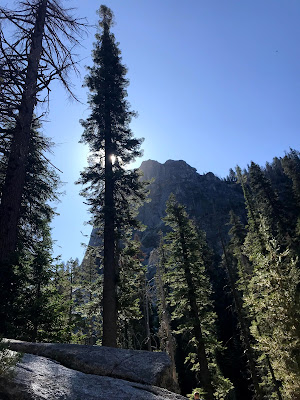If you work in health care as a doctor, or a nurse, or a therapist in any field, it's probably safe to assume you understand how the human body functions. How the heart maintains its steady beat without any effort or awareness on your part. How the lungs manage to deliver just the right percentage of oxygen to your tissues, and how they eliminate the carbon dioxide you exhale. How an open wound closes, or a broken bone heals.
"Your body's ability to heal is greater
than anyone has permitted you to believe."
~Roger Ford~
If the way the heart and lungs operate is something that amazes you, the way the brain works should mystify you. How it oversees and regulates every bodily function. The way it controls movement, maintains our sense of balance, orchestrates vision and hearing, enables our senses of taste, touch, and smell, and modulates the neuroendocrine system. And on and on...
If you're in health care, you studied human anatomy and physiology for years. You learned about the anatomy, physiology, biochemistry, microbiology, and cellular biology that life, as we know it, depends upon, and illness disrupts. You are familiar with the functions and processes that make healing possible. Except one.
"Your body hears everything
your mind says."
~Naomi Judd~
The one thing we don't study, or dissect, or measure in preparation for patient care, which is our calling, is the nature and essence of thought. We don't examine memory under the microscope, or trace the course of creativity and imagination. We don't fully grasp the location or power of human consciousness, and we don't come close to understanding the function of the unconscious. Because no one understands it.
The hardest thing we can do is to think about our own thoughts.
"Consciousness poses the most baffling problems
in the science of the mind.
There is nothing that we know more intimately
than conscious experience,
but there is nothing that is harder to explain."
~David Chalmers~
Interestingly, it is not so much the biologists, physiologists, pathologists, or psychiatrists who are making headway in the quest to understand consciousness, but the quantum physicists, contemporary incarnations of the likes of Einstein, Bohr, Planck, Bohm, Heisenberg, John Wheeler, and Paul Levy who are compelled to define reality without any proof of it. To understand consciousness without any image of it.
If, like me, you are in awe of the complexity, precision, and perfect timing that mark the biology and physiology of the human body, you can't help but be mystified by the brain. Sooner or later you will be led to contemplate the role of consciousness in health and disease. The benefits of meditation. The influence of mood and emotion on wellbeing, all of which should amaze you. Humble you. And naturally spiritualize you.
"Attempting to understand consciousness
with your mind
is like trying to illuminate the sun
with a candle."
~Mooji~
I just finished a book about quantum theory. It opened with an introduction, foreword, and preface, and it ended with 896 footnotes. It suggests that there is a precise, elegant, and exact parallel, down to the most minute detail, between the laws of subatomic physics and the workings of the human mind. That would be hard enough to comprehend if we understood the mathematics that proves it. The problem is we don't have a language to express it yet. And, until we do, the nature of consciousness will remain a mystery, and an untapped resource for patients and healers alike.
"If you think you understand
quantum mechanics,
you don't understand quantum mechanics."
~Dr. Richard Feynman~
jan


